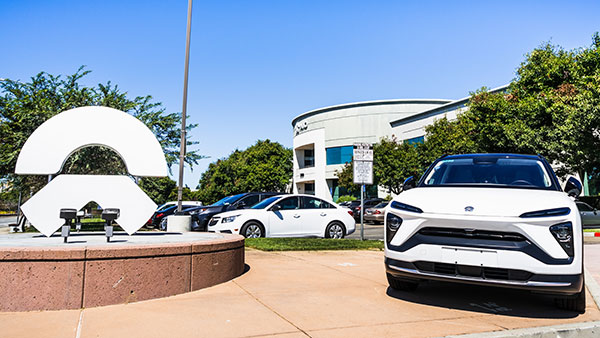
A trade war with the United States, weakening sales and now a disease epidemic are hammering China’s automakers. After the doldrums of 2019, this year could be another annus horribilis.
With about 3.5 million units, China leads the global market in absolute numbers of four-wheeler EVs on its roads, accounting for roughly half of the world’s fleet. Its two-wheeler fleet is also the largest. But year-on-year sales of new energy four-wheel vehicles plunged by 54.5% in January, according to the China Association of Automobile Manufacturers. The Chinese Automobile Dealers Association predicts an even bigger slump in February, by as much as 80%. Aggregate sales of battery EV and plug-in hybrids were about 1.2 million in 2019.
|
Particularly hard hit is Nio, the manufacturer of the five-seat ES6 and seven-seat ES8 electric sport utility vehicles. It had to cut more than 2,000 jobs back in September after ruinous cost overruns and product recalls.
|
Fears over the outbreak, which to date has infected more than 80,307 people and killed 2,707 (as of Feb. 25), from its origin in Wuhan have hit the rest of China’s economy, resulting in losses exceeding U.S. $440 million in the country’s market value. Events such as the annual Beijing Motor Show have been postponed, factories closed and flights cancelled.
Analysts were already fearful that the Chinese EV market might collapse back in August, after sales of new energy vehicles fell for a second straight month, at the same time as the government began to draw down some of its subsidies, reported Bloomberg.

Particularly hard hit is Nio, the manufacturer of the five-seat ES6 and seven-seat ES8 electric sport utility vehicles. It had to cut more than 2,000 jobs back in September after ruinous cost overruns and product recalls.
Nicknamed China’s Tesla, the company saw its share value tumble by 20% on the New York Stock Exchange after the losses were announced. The company is still reportedly hemorrhaging hundreds of millions of dollars per quarter and may not have enough cash to last out 2020. The start of the year has been brutal, with January sales nearly halved since December and a 11.5% drop from the year before, delivering a measly 1,598 vehicles. The company has also been forced to scrap plans for a manufacturing plant in Shanghai after the government decided to provide support to Tesla, which started production in the country this year.
Rivals are faring slightly better. In the first month of 2020, BYD, the manufacturer of electrified personal and public transport vehicles, sold 7,133 BEVs and PHEVs. Although the company outsold Nio in unit terms, it still represents a 46% slump from December 2019 and 75% from January 2019. To make matters worse, its commercial EV division suffered a 95% drop from December and 83% from the same month the year before.
Like Nio, BAIC BJEV sold a less-than-sparkling 2,006 EVs in January, a drop of 95% compared with December 2019 and 56% compared to January 2019. For the whole of last year, the company sold 150,601 units, which represents a decline of 4.7% compared to 2018. Among the Chinese manufacturers, however, BJEV remains the most successful manufacturer of all-electric vehicles.
The decline was made more precipitous by a public buying spree before last Christmas, when cars were being sold at a discount to offset poor fourth quarter figures.

Sorry, a technical error occurred and we were unable to log you into your account. We have emailed the problem to our team, and they are looking into the matter. You can reach us at cs@lubesngreases.com.
Click here link to homepage